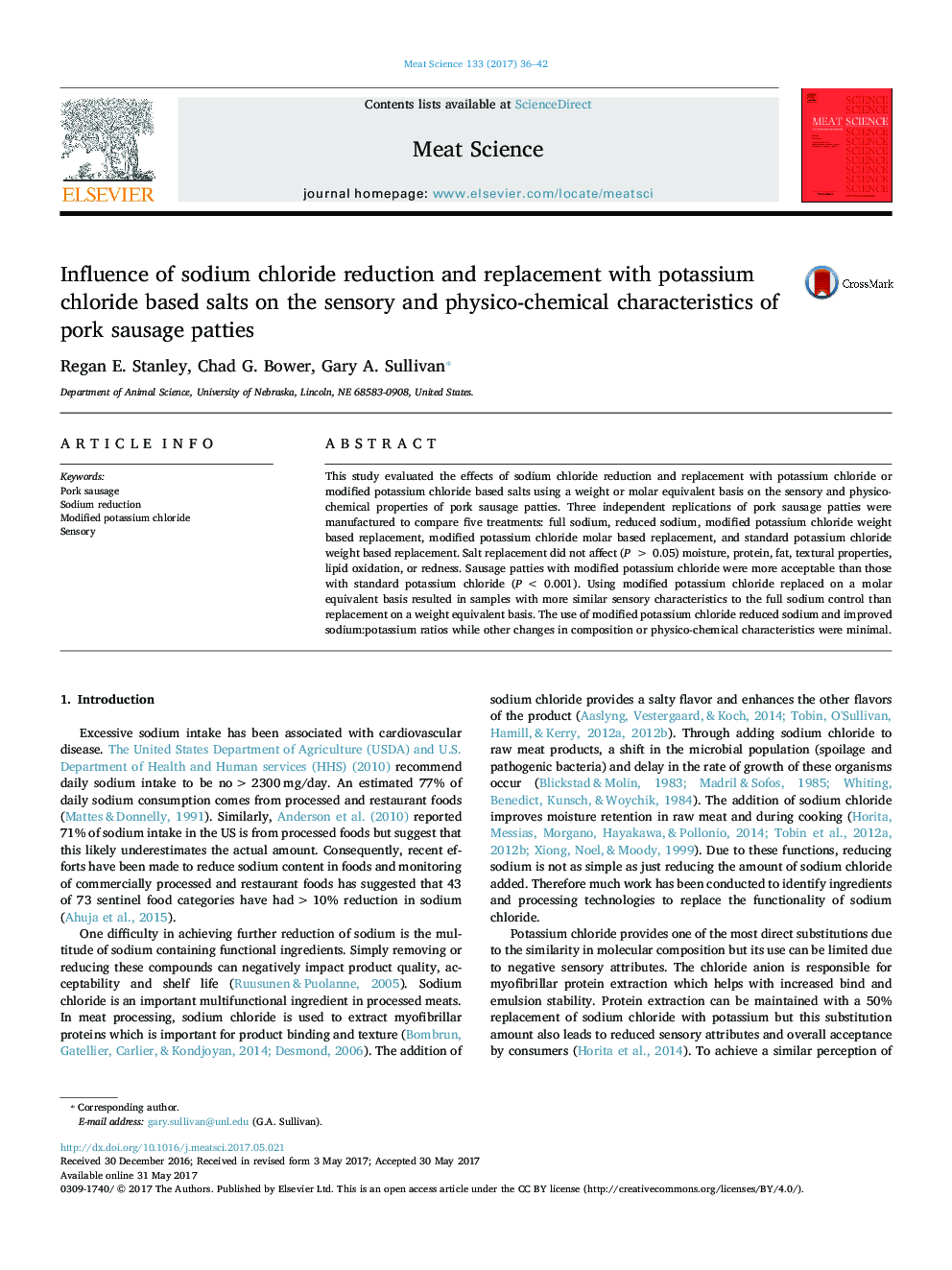| Article ID | Journal | Published Year | Pages | File Type |
|---|---|---|---|---|
| 5543291 | Meat Science | 2017 | 7 Pages |
Abstract
This study evaluated the effects of sodium chloride reduction and replacement with potassium chloride or modified potassium chloride based salts using a weight or molar equivalent basis on the sensory and physico-chemical properties of pork sausage patties. Three independent replications of pork sausage patties were manufactured to compare five treatments: full sodium, reduced sodium, modified potassium chloride weight based replacement, modified potassium chloride molar based replacement, and standard potassium chloride weight based replacement. Salt replacement did not affect (PÂ >Â 0.05) moisture, protein, fat, textural properties, lipid oxidation, or redness. Sausage patties with modified potassium chloride were more acceptable than those with standard potassium chloride (PÂ <Â 0.001). Using modified potassium chloride replaced on a molar equivalent basis resulted in samples with more similar sensory characteristics to the full sodium control than replacement on a weight equivalent basis. The use of modified potassium chloride reduced sodium and improved sodium:potassium ratios while other changes in composition or physico-chemical characteristics were minimal.
Keywords
Related Topics
Life Sciences
Agricultural and Biological Sciences
Food Science
Authors
Regan E. Stanley, Chad G. Bower, Gary A. Sullivan,
